#because everyone keeps becoming dana from kindred
Explore tagged Tumblr posts
Text









"The Garden of Eden and Sin City: Harappa and Babylon, 2000-539"* from Metropolis: A History of the City, Humankind's Greatest Invention by Ben Wilson • Popular History • Microhistory • ☆☆☆☆☆ [review] [Wervty's Obscured Icon Maker]
Aileana Kameron from The Falconer by Elizabeth May • Young Adult • Urban Fantasy • Steampunk??? I Guess • ☆☆ [review] [The Lady of Hera]
"The Cliché of the Viennese Café as an Extended Living Room: Formal Parallels and Differences"* from The Viennese Café and Fin-de-Siècle Culture, edited by Charlotte Ashby, Tag Gronberg, and Simon Shaw-Miller • Scholarly History • ☆☆☆ [review] [picrew]
Chiang Yee, author and illustrator of The Silent Traveller in New York • Memoir • Travelogue • ☆☆☆☆☆ [review] [Grgikau Character Maker]
Harietta Lee from Deadline by Stephanie Ahn • Urban Fantasy • Erotica • ☆☆☆☆ [review] [Bright's Picrew Hell]
Josyn from A Princess of Vision by Jen Lynning • Fantasy Romance • ☆☆☆☆ [review] [picrew]
Dana Franklin from Kindred by Octavia Butler • Historical SF • Drama • ☆☆☆☆☆ [review] [naylissah's Black Centered Picrew]
Patricia Vasqez from Eon by Greg Bear • Hard SF • Space Opera • ☆☆ [review] [Bright's Picrew Hell]
Edmund "Bunny" Corcoran from The Secret History by Donna Tartt • Literary Fiction • Psychological Drama • ☆☆☆☆☆ [review] [Mano's Picrew!]
--
* With nonfiction books I may try to represent a person but I may also represent a chapter, or an idea.
a picrew for every book I read in 2023
January 1 through January 24:
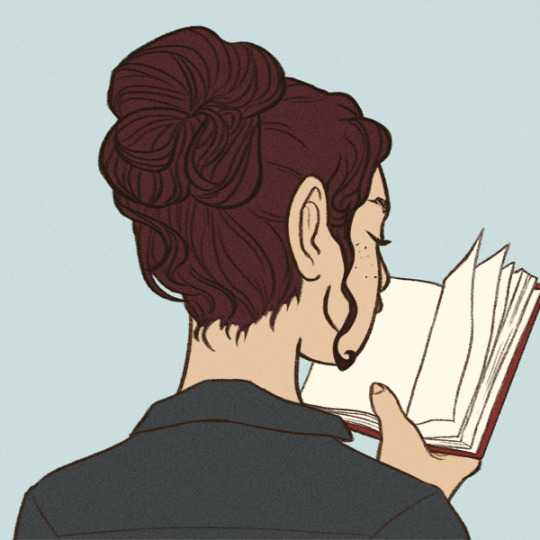

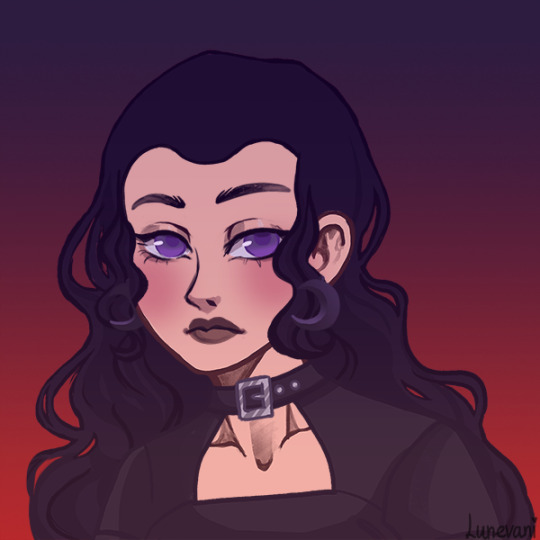
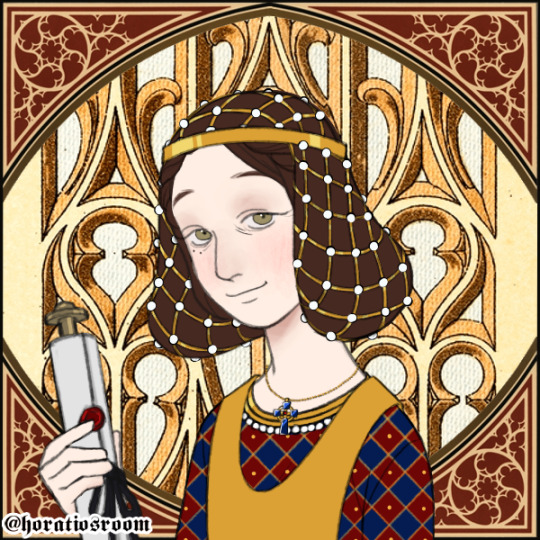

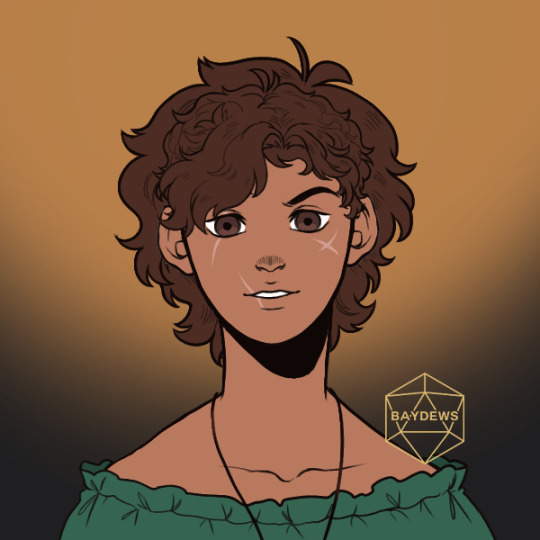
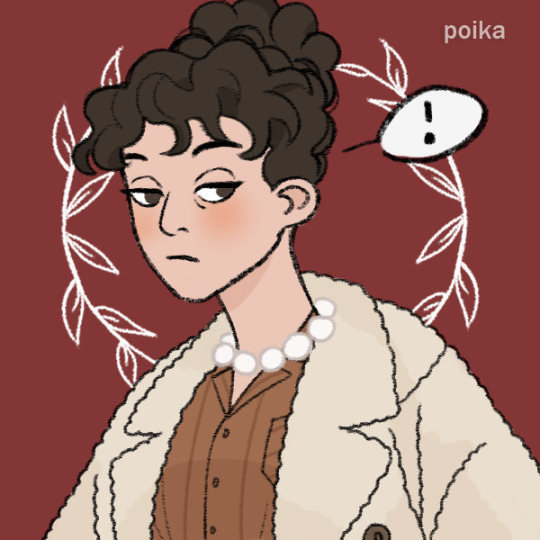
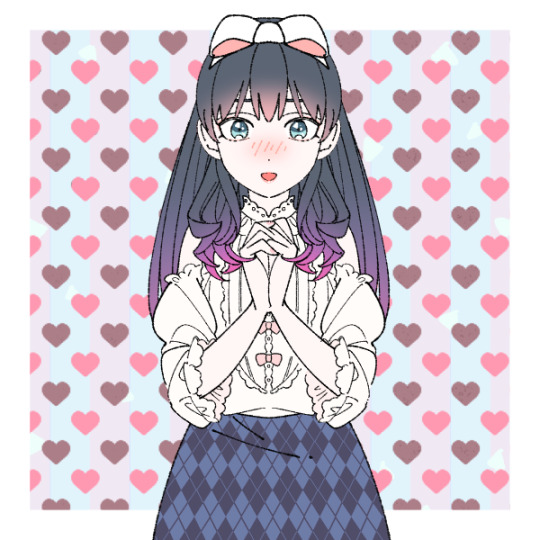
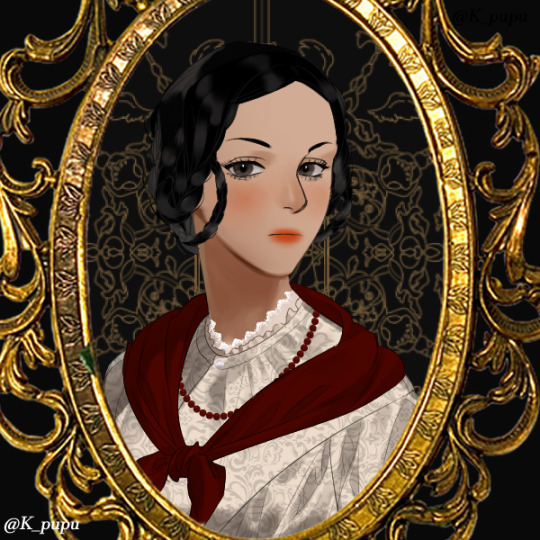
"Stadt Ohne Jüdinnen: Absent Jews and Invisible Women in The City Without Jews"* from Becoming Austrians: Jews and Culture Between the World Wars [review] [cybersoybean's head creator]
Skylar from Earth & Skye by Megan Crewe • Young Adult • Science Fiction • ☆☆ [review] [BAYDEWS' avatar maker!! V2]
Corvina Clemm from Gothikana by RuNyx • New Adult • Self-Described "Dark Academia Romance" • ☆☆☆☆☆** [review] [lunevani's Ultimate friend's face maker]
Margaret Paston* from A Medieval Family: The Pastons of Medieval England by Joseph and Frances Gies • Popular History • Medieval Europe • ☆☆☆☆ [review] [horatio's Medieval Maker]
Richard St. Vier from Swordspoint by Ellen Kushner • Low Fantasy • Adventure • ☆☆☆☆☆ [review] [Mano's picrew]
Sancia from Shorefall by Robert Jackson Bennett • Gaslamp Fantasy • ☆☆☆☆☆ [review] [BAYDEWS' avatar maker!! V2]
Florence Scala,* defender of Little Italy who was briefly mentioned in Chicago's Block Clubs: How Neighbors Shape the City by Amanda I. Seligman • Academic History • 20th Century Chicago • ☆☆☆☆ [review] [poica's poicon maker]
Serinuma Kae from Kiss Him, Not Me Vol. 2 by Junko • Romantic Comedy • Shojo • ☆☆☆ [review] [picrew]
Anequs from To Shape a Dragon's Breath by Moniquill Blackgoose*** • Young Adult • Science Fantasy • ☆☆☆☆☆ [review] [The Lady of Hera]
--
* With nonfiction books I may try to represent a person but I may also represent a chapter, or an idea.
** 5 stars not because it was a good book, exactly, but because I really enjoyed reading it.
*** I received this as an advanced review copy so it's not out yet; it will be available on May 9, 2023.
#books#kaesa op#2023 reading#gore cw#also wow the explanations and links on the first installment were kinda fucked up originally#they're fixed now#tumblr just kinda decides to replace 1-3 lines of my numbered lists with the previous lines which sucks#I have had to retype this 3 times#because everyone keeps becoming dana from kindred
5 notes
·
View notes
Photo

Congratulations M! You’ve been accepted as ENCELADUS with a FC change to GUGU MBATHA-RAW.
M, I’m so glad you decided to take up a second character, and thank you for being so patient! Dana is a character you were immediately drawn to, and it shows in your app. I can tell there’s a lot of emotion you’ll bring to her, especially with the recent actions of Benjamin Granger. I especially liked reading about her feelings about being the odd one out in her family, and I can’t wait to see what happens now that she’s no longer that to her family, but may have become that to the rest of the world.
Welcome to Mutants Rising! Please read the checklist and submit your account within 24 hours.
Out of Character Information:
NAME/ALIAS: M
PRONOUNS: She/her
AGE: 27
TIMEZONE & ACTIVITY LEVEL: GMT+1
In Character Information:
DESIRED ROLE: Dana Ramone/Enceladus
GENDER/PRONOUNS: Cis female, she/her
DETAILS & ANALYSIS:
Dana grabbed my attention immediately not for her power because I do find other more subtle/neutral abilities to be just as enticing (here’s looking at Tethys’s telepathic abilities) but she grabbed my attention because she’s the odd one out in her family and i thought it’d be interesting to write her as this girl who’s resigned herself not to be great who’s been in the shadows of her family because they were all so great just by virtue of being born mutants when she was not (or so she thought) and to write how that affected her. I pictured this girl with quite a frail self esteem because i definitely pictured her half sister lording the fact that she had a mutant ability over her head, making her feel less than even when she didn’t mean to at times and to be honest also because Dana probably took to the belief that human equals less than all on her own just seeing how disappointed her parents were that she appeared to be different and I liked to think of the growth and the journey from that girl to a more self assured woman who’s taking charge of her destiny and so I wanted to include it in her bio that she did something for herself, something to make herself happy even though she thought she was human and that fact was making her feel so utterly alone and inadequate. I think Dana’s arc is gonna be one of growth and change and so of course I wanted to try and be the one to write it.
BIO:
Dana Ramone spent half her life in the shadows, the odd one out in her family. Angela and their parents were all gifted, all genetically superior, all mutants and Dana was not. She watched as her older half sister’s talents bloomed with envy and awe in equal measures. She can recall the day, the hour even. The moment her sister’s power awakened and Dana watched in awe and trepidation started to set in, she could not wait for her time to come. Unfortunately the fates had other plans and Dana never developed a power of her own. Her biological father was a human not a mutant and in not developing a gift of her own she proved her father’s daughter even though she knew nothing of that man, had never ever seen a picture of him. Her mother and her step father grew to resent her for the reminder and for the shame brought onto their family. They were a family of mutants and Dana couldn’t have been like them, she had to be different. Of course blaming a child was cruel and nonsensical but Dana could feel their resentment towards her grow with each passing year that she remained painfully human.
To make living this way tolerable she made her choices. She figured being human was not a death sentence, she could make something herself. There were plenty of humans that had accomplished great things and while she had no delusions of grandeurs or great ambitions she made it her mission to find herself a purpose. Medical school was an evidence. She liked to mend things, she liked to feel useful and what better way than saving people’s lives or even simply providing care to the sick. She became a nurse and she was the best nurse in her hospital, surgeons always preferring to have her in their operating room rather than one of her colleagues. She might have been human but she was successful and happy. Happy but not fulfilled. There was still a sense she couldn’t shake that her purpose was elsewhere, she simply did not know where.
Self pity was only making her more miserable though and some chaos was just what she needed, quitting her position at the hospital one day and taking all her savings to go on a road trip on a whim was a choice that came to her brusquely. She was not going to find what her purpose was, she decided by following her old patterns. An adventure was just what she needed. On her journey though she got more than she bargained for. As all hope that any power would ever awaken in her had been extinguished years ago, the first sparks of it within her came as a shock. She was in denial for a while until there was no more explaining it away.
She can’t remember it now, not clearly but something upset her quite deeply and suddenly the earth seemed to be shaking under her feet and whenever her emotions would be out of control for even the slightest moment the same phenomenon would occur until it became crystal clear that she was the cause. She hadn’t planned for this moment at all, had convinced herself that even if she should be so lucky to have her power awaken, it would be a defensive one, harmless. She could not possibly measure up to Angela after all, who’d mastered her own power in so little time it was almost insolent. And yet here she was threatening to cause earthquakes wherever she went.
It was clear she needed guidance but was at a loss at where to find it. She didn’t want her family to know just how out of control she was, how out of sorts. That would only bring them shame, perhaps even more shame than that of having a daughter without any powers at all. Her path crosses Benjamin Granger’s by utter coincidence and she does not take notice of him at first until he reveals who he is and what his power is. He can see she’s troubled, he says and she’s grown quite weary practicing control all on her own, attempting to master her ability and her grasp on it is so tenuous, that much she knows.
The man is honest, more honest than most and he lays it all out for her. He runs a collective of like minded folks he says guided by one motivation: greed. The way he seems to see it, they were all given amazing abilities for a reason and why shouldn’t that reason be to make a living in unorthodox ways. He’s a thief but a thief with style that much she cannot deny and the idea of getting to know a collective of mutants, of getting advice and training perhaps is too tempting. Truth is even if she thought her parents could withstand the burden of teaching her to master her power at so late an age, her pride is in the way. She’d rather learn from anyone but them. She asks Benjamin if they need a new member and tells him she can be of assistance. She has skills. She’s a nurse, a damn good one at that. He tells her they were just in need of a doctor and it’s as easy as that. Introductions with the rest of the King’s Collective members go smoothly, they’re not hostile just curious and she feels like she might finally be touching upon what it is she should do with her life. Heists weren’t anything she would have seen in her future but they’re a challenge and she likes that.
Finding out later on that her sister had joined a different and rival collective of mutants was barely a surprise but she was determined to keep her head held high and own her choice and besides everyone in the King’s Collective felt if not quite like a family, like her chosen people. They’d have her back so long as she had theirs, so long as she did her job. And she wasn’t going to let anyone else decide whether or not she had what it took to be great anymore and certainly not her sister.
EXPANDED CONNECTIONS:
Kiara Mandal: Kiara is a kindred spirit to Dana and someone she definitely looks up to and who can calm her down for some reason. I think Kiara is definitely the friend in Dana’s life that was lacking all along and she feels quite deeply for her, she’s one of those people Dana would do anything for and I’d love to explore that bond of sisterhood because I do think it’s ironic how Dana found something so close to a sister in Kiara when she could never connect with her own sister.
Cain Douglas: He isn’t just on an opposite side he is completely opposite to her. Anytime she catches a glimpse of him it’s like looking through a distorted mirror. He is what she could have been had her circumstances been different but there’s a whole side to him that is also completely unknown to her and she’s fascinated by the Jem’s doctor. I think there’s this fine line she could be walking between curiosity and full out treason if she pursued her interest in him and that’s definitely what makes the connection so interesting to me.
Anything else: I’d like a fc change to Gugu Mbatha-Raw, please.
0 notes
Text
Blog 2
Throughout the novel Kindred, author Octavia E. Butler layers into her writing the ideology of how everyone must act according to their roles. Dana, Kevin, and Rufus all have their own pronounced roles within the story line. I believe that Dana uses acting and roleplaying in order for her not to attach herself to the past or the people she encounters while there. If they were to fall out of their roles, they would suffer consequences imposed by the society of Rufus’ time and lose a piece of their resistance toward actions against them. They would lose their resistance toward being oppressed, lose their love in an interracial marriage, and lose the resistance toward the manipulations that come from Rufus. Kevin does not discriminate his roles. He exhibits a newfound attachment to the era when he states, “This could be a great time to live in. I keep thinking what an experience it would be to stay in it…” (Butler, 97). As the reader later finds out, because Kevin did not separate his identity and the role he had to play, he immersed himself into the culture of the time. This left Kevin’s character struck with remnants to hang on to pull him toward Dana in the end. Roles connote the unfamiliarity of the societal norms upheld during this time and how easy it becomes to tangle yourself within this lifestyle. These societal norms include gender norms and racism. With Dana’s role, she becomes the white talking black women. She is a slave in the eyes of the Weylin family and too white to be black amongst the slaves. Dana is left with a divided role to appease the Weylin’s and to cajole the slaves she serves with on the plantation. In an encounter with Tom Weylin, Dana internally states, “At first I stared back. Then I looked away, remembering that I was supposed to be a slave. Slaves lowered their eyes respectfully. To stare back was insolent” (Butler, 66). She reminds herself by physically saying it out loud or enduring racism by telling herself internally that this is just a role she is playing. As Dana, progresses throughout the novel, she repeatedly reminds herself that she needs to play the part of a slave and that those actions are separate from herself and do not embody her beliefs. Doing so was a way to tolerate the treatment she received and understand the roles Tom and Rufus Weylin are forced to play due to the pressures of their slavery-based society.
1 note
·
View note
Text
Moving Toward a More Racially, Just Space
--Davena
“What is needed is a realization that power without love is reckless and abusive, and love without power is sentimental and anemic. Power at its best is love implementing the demands of justice, and justice at its best is power correcting everything that stands against love.
--Dr. Martin Luther King, Where Do Go from Here
Indeed, the graphic novel’s adaptation of Octavia Butler ‘s Kindred struck a deep, yet painful accord. Because of slavery, Blacks lived in a time when violence, pain, and hurt was commonplace. The White slave masters engaged in hegemonic practices that contributed to the pervasiveness of subjugation and suffering in the lives of the slaves. Martin Luther King’s quote aptly helps me to conceptualize better that power exempt of love and justice contribute to racial disharmony and the dehumanization of people of color.
Power without Love
And so, we begin with herstory. I use the term herstory to highlight that the story is told from a Black female’s perspective. It graphically portrays how Dana’s traveling back and forth in time juxtaposes her everyday experiences with her White husband, Kevin, and her out-of-body experiences of when she returns to 1815 to the Weylin Plantation in antebellum Maryland. Racism permeates every aspect of the period, which contributes to Dana having “to save the life that is her own” (Walker, 1983), to the Whites denying the slaves agency, and to slaves’ having to endure inhumane acts of cruel punishment.
From the moment Dana meets Rufus, she is drawn into his vengeful and hateful acts, and she tries to determine her connection to Rufus. We learn that to save Rufus’ life that Dana inasmuch is saving her own life and that to protect Rufus will ensure her family’s survival. Dana says that he is “several times her grandfather” (p. 35). Indeed, Dana grapples with this knowledge, and we learn of her thoughts because of her inner monolog. She recognizes that both Rufus and his father, who are cruel, yield power over the slaves. The power that they enact is without love and mercy. Dana says, “I had seen people beaten on television, in the movies. I’d seen too-red blood substitutes streaked across backs and heard well-rehearsed screams. But I’d never smelled their sweat, head them pleading and praying…Please Master!” (p. 43). Dana acknowledges that she has seen violence in the media. Yet she also seems to recognize that to see the slaves plead for their lives represent to her how the slaves’ bodies are not their own. Dana feels powerless and is unable to help the slaves. Her “stomach heaved,” and she feels “shamed before their families and themselves” (p. 43) when Alice, as well as her husband, are beaten. He is subsequently taken away. Although she is not a slave, she is regarded as such and must stay in her place just as the slaves are required. For Dana, to see the slaves suffer helps her to grasp better the cultural dynamic that exist. In one instance, she witnesses Alice and her husband attempt to flee the inhumane existence that has disallowed them to be free. However, there are other occurrences when the slaves are unable to combat the suffering that they experience. The slaves’ denial of agency at the hands of the Whites elicits varying responses from the acts of violence. Feeling powerless drives some of the slaves to face their condition much differently.
Love without Power is Sentimental and Anemic
How do some of the slaves make sense of their pain and suffering? Where we see Alice and her husband try to resist the subversive acts inflicted upon them, Alice says about Sarah that she is “frightened, powerless, and desperate to keep her only child safe” and that she “accepted a life of slavery out of fear” (p. 144). Because the slaves are denied agency, the slaves are prevented from learning to read and write. Sarah, says “Niggers writing books! Foolishness” (p. 144). Unfortunately, Sarah is preventing from seeing beyond the condition that has enslaved her and the other slaves. Having been powerless for so long their sadness and pain has manifested into acceptance out of fear. On the other hand, Alice, who judges Sarah, recognizes that Alice during the 60s would be held in “contempt” (p. 144). Alexander (2006) in her work emphasizes that “as in all matters of racialization, both our identity (our, social, cultural, and historical location) and our consciousness (the experiences, the interpretations, and knowledge we use to explain that location) are constantly being thrown into contestation” (p. 267). I agree with Alexander. To equate this quote to Dana, she interrogates the slaves’ existence and feels that they should question their reality and by responding to and disrupting of the White power that holds them down. Dana recognizes that by teaching the children to read that this act may give them more power. Although Dana tries to make sense of how the slaves like Sarah come to turns with their suffering and choose to stay in their place, she acknowledges further that Tess is “just grateful not to be pregnant” even though Tom Weylin repeatedly rapes her.
Dana’s continued determination is unable to stop Rufus, Tom Weylin, and the Whites’ acts of violence. She recognizes that Rufus is “part of the system” (p. 197) and “slavery fostered strange relationships” (p. 202) between the slaves and their masters. There is no justice that comes on behalf of the slaves. For many, resistance is met with death. For others, they are silent about their own suffering. Simply put, denying the slaves their freedom and treating them humanely causes the slaves to experience and endure inhumane acts of cruel punishment.
The beatings, whippings, and degradation (e.g., the women being raped) that the slaves endure from Whites is tragic. Dana experiences pain and suffering although for a shorter period. Dana deplores notion that “there is no shame in raping a black woman, but there could shame in loving one” (p.117). It is unfortunate that this dichotomy exists, which results from the racial power that is denied Black women. They are deprived of the right to their bodies. What was needed then, and even still today? Justice with power will guarantee better a more equitable existence for Blacks and people of color.
Justice and Power: Implications for my own work
In reading Kindred, I think about the importance of students knowing their history. When students can engage in critical conversations about slavery and how many racist practices (e.g., linguicism, Black students’ being denied the same privileges as Whites, etc.), they might be better equipped to disrupt, dominant notions that marginalize Blacks and students of color. The White supremacist thinking (i.e., Whites’ thinking that they were better than Blacks and Whites’ denying Blacks’ agency in all aspects of their lives) resulted from slavery. Hooks (2013) emphasized that “White supremacist thinking continues to be the invisible glue that keeps White folks connected irrespective of many other differences,” (p. 11). I contend that it is the same “invisible glue” that keeps all educators, both White and non-White, stuck to deficit attitudes and perceptions about students’ of color achievement and their inability to create transformative learning spaces that foster love, care, and justice. My understanding of White supremacist thinking brings me to ask the question: What are the tragic consequences of students who sit in classrooms in which hegemonic practices, which were passed slavery? When students of color are educated in settings that do not foster equity, they experience “(1) racial trauma through educational inequality, (2) institutional racism through Eurocentric curriculum and pedagogy, (3) and race-based teacher bias “(Warren, 2012, p. 197). “Where do go from here?” Still, Blacks experience “racial suffering in schools” and “power on [their] racialized bodies” (Dumas, 2014) in the classroom.
Unfortunately, continued subversive acts (e.g., linguicism) towards students of color can have a deleterious effect on their bodies. Indeed, I believe that part of our social responsibility as educators, and most importantly as American citizens, is to ensure that power and justice are rendered with love. We must work toward confronting and ridding our society of racism. Being the realist that I am, I’m not sure if we’ll ever be free of racism and White supremacist thinking. However, I am hopeful that if we try to not only influence but also to change the consciousness of both Blacks and Whites by everyone becoming positive change agents, we may have half of a chance.
References
Duffy, D. & Jennings, J. (2017). Kindred. New York, NY: Abrams, The Art of
Books. (Original work published 1977)
hooks, b. (2013). Racism: Naming what hurts. In b. hooks, Writing beyond race:
Living theory and practice (pp. 9-25). New York: Routledge.
Dumas, M. J. (2014). 'losing an arm': Schooling as a site of black suffering.
Race Ethnicity and Education, 17(1), 1-2 doi:10.1080/13613324.2013.85041
Moraga, C., & Anzaldúa, G. (1981). This bridge called my back: Writings by
radical women of color. Watertown, Mass: Persephone Press.
Walker, A. (1983). In search of our mothers' gardens: Womanist prose (1st ed.).
San Diego: Harcourt Brace Jovanovich.
Warren, C. A. (2012). The effects of post-racial theory on education. Journal for
Critical Education Policy Studies.
0 notes